Category Archives: South Atlantic
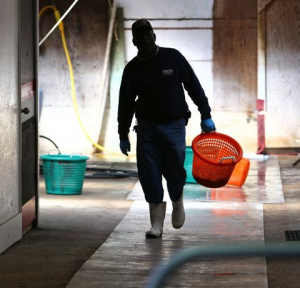
Local shrimp industry a tradition worth saving
The town of Mount Pleasant is now in the shrimping business as the new owner of the Wando dock on Shem Creek. What happens there over the next few seasons will be crucial to the future of the local seafood industry, as well as the wider Shem Creek community. First, the town needs to listen to the fishermen and provide them with a serviceable hub of operations, sufficient dock space and easy access to fuel, ice and a processing facility. >click to read<12:46
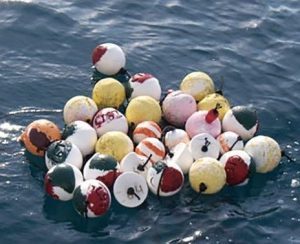
Florida Commercial fishermen can apply for Hurricane Irma assistance
Twenty-one months after Hurricane Irma, the funds are in place to begin restoring the losses of commercial fishermen in the Keys. The Florida Wildlife Commission has $44.6 million that will be available for marine fisheries assistance. The first step, according to the state agency, is for commercial fishermen to register in two places: Commercial fishermen — from coastal counties in Florida from Dixie County to Monroe County on the west coast and Nassau County to Miami-Dade County on the east coast — are urged to complete these steps by July 10, 2019. >Click to read<12:08
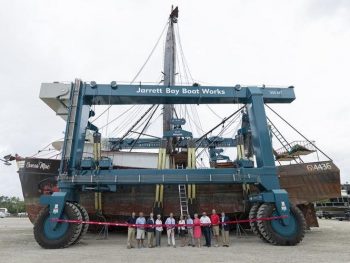
Jarrett Bay unveils new boat lift
Local and state officials joined Jarrett Bay Boatworks management and team members for a ribbon-cutting ceremony June 11 for all who aided in the purchase and operation of the new 300T Marine Travelift. A grant from MARAD helped support the purchase of the 300-ton Marine Travelift, which is a first for a North Carolina shipyard. This new equipment was recently put into service and is already fostering economic growth for the coastal Carolina region, according to Jarrett Bay. >click to read<10:02

Coast Guard suspends search for missing fisherman 300 miles east of Cape Canaveral
The Coast Guard suspended its search Tuesday for a missing fisherman who reportedly went overboard 300 miles east of Cape Canaveral. Missing is Russell Minor. After searching more than 4,640 square miles for over 42 hours, officials were unable to locate Minor who was reported missing Sunday. >click to read<22:18
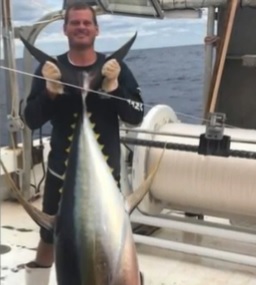
Coast Guard searching for Fort Pierce fishing captain who fell overboard
The U.S. Coast Guard is searching for 31-year-old Russell Minor, the captain of a 46-foot fishing vessel who reportedly fell overboard at 2:57 a.m. on Sunday while boating 300 miles east of Cape Canaveral. The Coast Guard said crew members of Day Boat Too, owned by Day Boat Seafood, LLC, alerted authorities to Minor’s disappearance.,,, At approximately 6:30 a.m. on Sunday, members of the Coast Guard began searching for Minor using both rescue boats and helicopters. “The search is on-going and there are no plans to suspend the search at this time,” >video, click to read<19:21

A Fishery Management Proposal
Its frustrating to watch fish regulators on the various fishery management councils continuously cut back on fishermen allocations with no regard for how they will make up for the “scientific” decision that takes revenue from them. I have reached out to various politicians to create a Farm Bill for fishermen, which would be a huge undertaking for the Congress, and in the current political climate, it seems like an impossible task, even though it is needed. In the meantime, the mismanagement continues, and people are pushed closer to exit the industry, which is unacceptable. What I am proposing is to correct this and mitigate the damage caused by the cutback is legislation. This is what I would like to see. Sam Parisi >click to read<12:16

Coast Guard searching for a missing fisherman 300 miles east of Cape Canaveral
The Coast Guard is searching Sunday for a missing fisherman 300 miles east of Cape Canaveral. At 2:57 a.m., Coast Guard 7th District Command Center watchstanders received a report from the Day Boat Too, a 46-foot fishing vessel, stating the captain, a 30-year-old male, went overboard. >click to read< To be updated.11:57
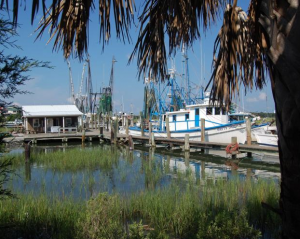
Town of Mount Pleasant acquires ownership of Wando Dock
The Wando Seafood Dock on Shem Creek has changed hands twice in less than a week, this time its ownership has fallen into possession of the Town of Mount Pleasant. The acquisition was announced Friday on the heels of previous owner Brett Elrod, who closed on the property and then flipped it to the town for $4.35 million. Last August, Elrod entered into a contract to purchase Wando Dock for an undisclosed amount, which encompasses a 1-acre lot and 350 feet of dock space. He signed with the intent of refurbishing its preexisting state of affairs which were in need of repairs and an environmental study. >click to read<17:36
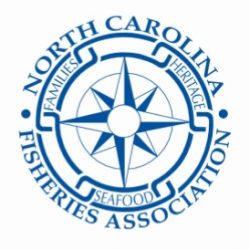
North Carolina Fisheries Association Weekly Update for June 14, 2019
Legislative updates, Bill updates, Calendar, >Click here to read the Weekly Update<, to read all the updates >click here<, for older updates listed as NCFA >click here<12:20
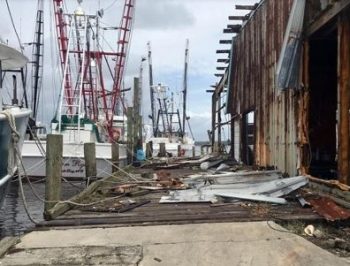
State mails final round of hurricane assistance checks to NC fishermen
Fisherman and shellfish harvesters hit by Hurricane Florence will soon receive more financial help from North Carolina leaders. On Thursday, Governor Roy Cooper’s office announced $450,000 had been sent out to more than 1,100 applicants. The funds are the last disbursements of a $11.6 million package of Hurricane Florence relief efforts specifically for commercial fishermen. >click to read<19:53
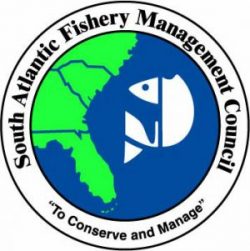
South Atlantic Fishery Management Council meeting June 10 – 14, 2019 in Stuart, FL
The public is invited to attend the South Atlantic Fishery Management Council to be held June 10 – 14, 2019 at Hutchinson Island Marriott,
555 NE Ocean Boulevard, Stuart, FL 34996. Complete Agenda >click here< for details. For Webinar Registration: >Click here< To visit the SAFMC >click here<15:30
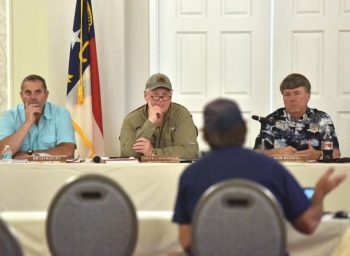
North Carolina: After public input, panel leans toward Southern flounder harvest reduction
State fisheries managers plan to reduce the harvest of southern flounder – commercial and recreational – by 62-72% to address problems with the spawning stock.,, met to select preferred management options for Southern Flounder Fishery Management Plan Amendment 2,,, N.C. Fisheries Association Executive Director Glenn Skinner said he’s been talking with commercial fishermen,,, “Their concern is when it will happen this year,” he said. “We’d ask you to do it in December. We need (the flounder harvest) this year. A lot of people still have hurricane damage. We need to be able to reinvest in the industry. Reductions have been made before (to the flounder harvest). They may not have been enough.”>click to read<09:26

North Carolina Fisheries Association Weekly Update for June 7, 2019
From Our Executive Director- Glenn Skinner – At the special MFC meeting held June 6 the Marine Fisheries Commission approved their preferred management options for Amendment 2 to the Southern Flounder FMP. The preferred management measures chosen would: >Click here to read the Weekly Update<, to read all the updates >click here<, for older updates listed as NCFA >click here< 13:17
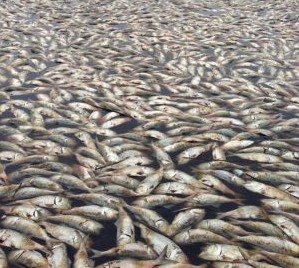
Sores, lesions: Early fish kill in Neuse worries those who use the river
State environmental crews are investigating a disturbing fish kill in the Neuse River. They’re trying to figure out why numerous schools of menhaden are breaking out in sores and dying in the river near New Bern.,,, The images are grotesque. Fish in the Neuse River swimming around with their insides hanging out.,, In a nutshell, the river is in very poor health and declining and continuing to decline,” said JoAnn Burkholder,,, Hans Paerl, said he believes pollution stirred up by Hurricane Florence could be the culprit now. And Paerl warns that water quality could deteriorate all summer if the weather is hot and dry. Scientists blame nutrient pollution from urban runoff, large industrial farms and waste water treatment plants. >click to read<11:25
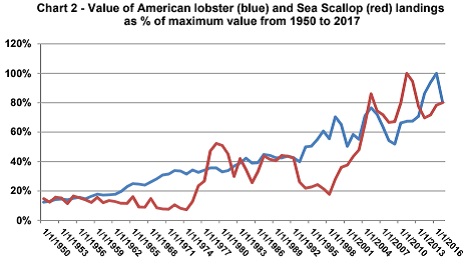
After over forty years of NOAA/NMFS management how are we really doing? Nils Stolpe
The Magnuson-Stevens Fishery Conservation and Management Act – I have seen the focus of government fisheries manage-ment increasingly shift away from the fishermen to the fish. The provisions of the Act as it was originally written were put in place to allow the U.S. fishing industry to regain control of the fisheries in the United States’ highly productive coastal waters,,, The legislation was singularly effective, so effective that within ten years or so of its passage the greatest portion of our domestic fish and shellfish production was being harvested by U.S. fishermen on U.S. vessels. This success was sold to the U.S. public – and the U.S. politicians – as an assault on the “sanctity” of our coastal waters by a burgeoning environmental industry that was (and still is) engaged in non-governmental empire building. This has resulted in a handful of multi-national ENGOs (Environmental Non-Governmental Organizations) that have become at least as influential as the fishing industry in national and international fisheries management. >click to read, and review the links and graphs<16:10
REMINDER: Public comment on AMENDMENT 2 of Southern Flounder Fishery Management Plan
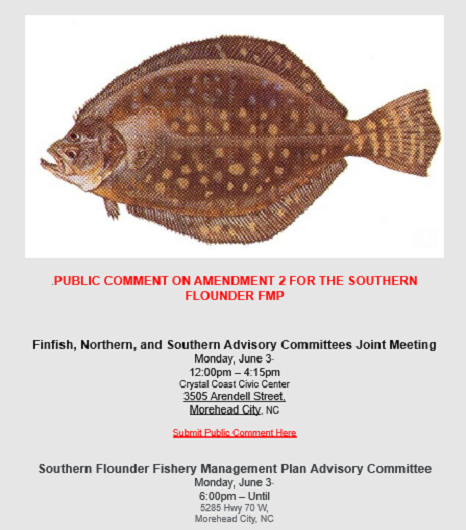 >click here< for information on Southern Flounder Amendment – >click here < to submit Public Comment on Draft Southern Flounder Fishery Management Plan Amendment 2 17:33
>click here< for information on Southern Flounder Amendment – >click here < to submit Public Comment on Draft Southern Flounder Fishery Management Plan Amendment 2 17:33
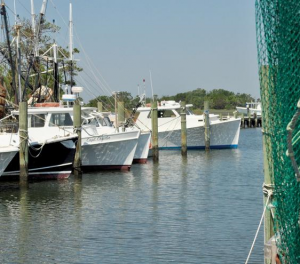
Fisheries panel raises concerns about proposed flounder reduction
The Carteret County Marine Fisheries Advisory Board convened for the first time since February of last year to discuss what they feel is a misguided attempt to save the southern flounder population. At the end of the Wednesday meeting at the county administration building, board members decided to send a letter to Gov. Roy Cooper and other state figures. At issue is a portion of the Southern Flounder Fishery Management Plan. Amendment 2 of the plan recommends a 62% reduction in catch of southern flounder the first year, followed by a 72% reduction the following year.
The first year begins this fall. >click to read< 12:53
Information on Southern Flounder Amendment – >Click here< for info, and to submit a written comment

North Carolina Fisheries Association Weekly Update for May 31, 2019
>Click here to read the Weekly Update<, to read all the updates >click here<, for older updates listed as NCFA >click here< Everyone in NC that has an interest in the Southern Flounder fishery (Restaurant, Consumer, Commercial or Recreational) is encouraged to attend the meetings that are scheduled for next week. 12:25 Information on Southern Flounder Amendment – >Click here< for info, and to submit a written comment
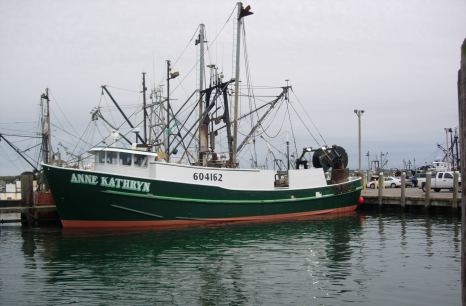
OUT TO CATCH THE LAST FISH? Fisheries “expert’s” anti-fisherman rhetoric gets taken to task!
“…most fishermen always want to catch more fish, regardless of how many there are.” This quote from the fisheries “expert” in the article, Warming waters spark marine migration, fish wars >click to read<on the warming ocean, and Joel’s subsequent comment, “And here in lies the problem. Look at what this cubical entrenched pencil pushing empty suit thinks of fishermen. Folks like this need to be taken to task”, inspired a re-post of this anti-fishing propaganda article, OUT TO CATCH THE LAST FISH? It’s a few years old, but sadly, as current as ever! To be a fisherman, these days, is to have first-hand knowledge of bias and mindless prejudice. Manipulating commercial fishing to save the stocks from “endangerment” and worse, has often been job justification for the political and personal agenda-driven, obsequious, career-climbing government fisheries “scientists” and managers. “Destructive” commercial fishing is also a handy foil for corporate style environmental groups’ fund raising efforts; and diminishing the importance of domestic commercial fishing is also a necessary step in the energy industry’s march into the sea. >click to read< Thank you, Dick.17:02
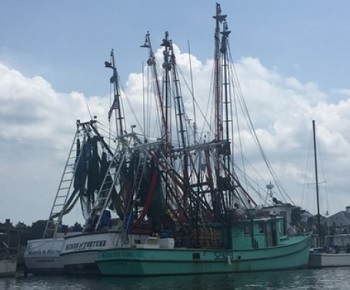
2019 Shrimp season seems promising according to SCDNR
Commercial shrimp trawling opened in all legal South Carolina waters Wednesday morning. Hopes are much higher for this year to bring a plentiful harvest after a disappointing 2018. January 2018 brought an unusually cold period that killed a majority of white shrimp in South Carolina waters. This delayed the opening of shrimp season to mid-June instead of the usual opening of around mid- to late- May. >click to read<11:06
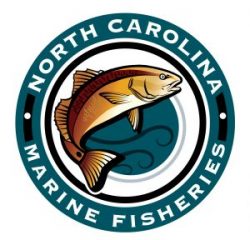
Alternate web page created for information and public comment on southern flounder management proposals
An alternate webpage has been established for the public to access information and submit public comment on Draft Amendment 2 to the Southern Flounder Fishery Management Plan. The alternate Information on Southern Flounder Amendment page >click<was created due to continued technical problems with the Division of Marine Fisheries website that has caused intermittent failures. The division is continuing to work with the Department of Information Technology to correct these issues, which are affecting websites statewide. >click to read, with links<15:22
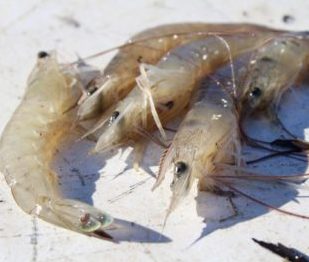
Commercial shrimping season opens today in Georgia and South Carolina
Commercial shrimp trawling will open in all legal South Carolina waters at 8 a.m. on Wednesday, May 29. Georgia state waters will open to trawling at the same time. Hopes are high that 2019 will bring a plentiful harvest after the previous year of relatively poor shrimping. In January 2018, an unusually cold period killed the vast majority of the white shrimp overwintering in South Carolina waters, delaying the 2018 opening of shrimp season until mid-June. Fortunately, according to regular trawl surveys conducted by South Carolina Department of Natural Resources (SCDNR) biologists, white shrimp numbers appear to have returned to at least the 10-year average, hopefully heralding a better season for the state’s commercial fishery. >click to read<08:58
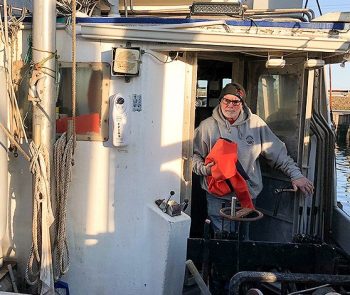
Warming waters spark marine migration, fish wars
The warming waters associated with climate change are creating big ripple effects across fishing communities, including in this picturesque seaside town with a long fishing history. Take Joel Hovanesian, who last fall docked his 40-foot trawler at the Port of Galilee, calling it quits after a 42-year career of chasing fish.,,, Up and down the Atlantic coast, commercial fishermen are heading for the exits these days, irked by government rules and regulations that they say haven’t kept pace with the changes. Fishermen have long battled over fish allocations, but the fights have become more intense and complicated due to climate change. As more fish head north in search of cooler waters, fishermen complain that quotas have not kept pace with shifting stocks, making it harder for them to make a living and bring fish to market. >click to read<15:46
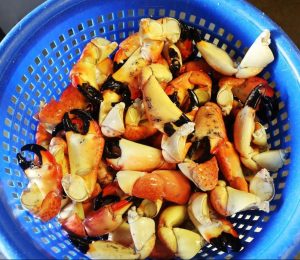
Hit-or-miss hauls end another unpredictable Florida stone crab season
“We knew guys who were fishing 500 traps and would catch less than six or seven pounds,” Gandy said. “Lots of (crabbers) just didn’t do it this year.” Meanwhile, those crabbing to the north, from around New Port Richey to the panhandle, saw some giant hauls, especially early in the season, which started in October. The director of one commercial fishing association described Florida’s season overall as “pretty disastrous,” unless you were between Hudson and Crystal River where “they were breaking records.” “What’s crazy is the rest of the world had a horrible crab season,” >click to read<12:57
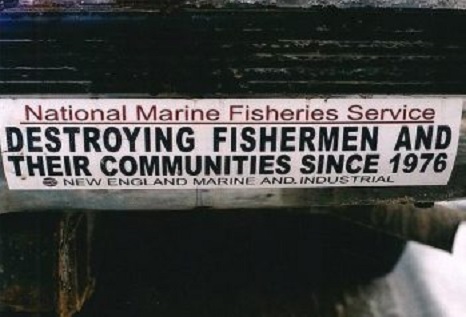
How to wreck an industry – Catch shares lead to consolidation of Alaskan fisheries
A recent study documenting consolidation and specialization in Alaska’s fisheries over the past three decades illustrates a broader trend taking hold in coastal communities across the country. Catch share programs, a new fisheries management system, are turning fishing rights into tradable commodities, driving up the cost to fish and consolidating fishing rights into the hands of a few wealthy owners. For instance, in Alaska’s Bering Sea crab fishery, just four companies own 77 percent of the rights to fish a single crab species. >click to read<11:30

North Carolina Fisheries Association Weekly Update for May 24, 2019
A Word from Our Executive Director – Glenn Skinner, At their May Business meeting, the Marine Fisheries Commission voted to send draft Amendment 2 (to the Southern Flounder FMP) as presented by the Division to the Advisory Committee and out for public comment with the addition of data pertaining to a partial moratorium. The Division recommended using seasonal closures to reduce the recreational and commercial harvest of Southern Flounder by 62% in year one and 72% in year 2 of Amendment 2. >Click here to read the Weekly Update<, to read all the updates >click here<, for older updates listed as NCFA >click here<14:35
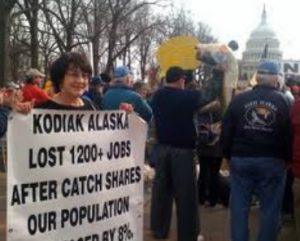
Our coastal communities are drowning, largely thanks to tradable quotas and licences.
British Columbia’s coastal communities, long dependent on fishing for their livelihoods, are in serious trouble: population down, youth retention down, incomes down, investment down, infrastructure down, health and well-being down. It’s now almost impossible for young people to enter the fishery because of the high cost of purchasing or leasing the Individual Transferable Quotas (ITQs) attached to most fishing licences. ITQs are permits to catch a certain quantity of fish, and can be freely traded or leased. Coastal communities that used to have dozens of fishermen now may have a handful at best. The boatbuilding, repair, and gear supply businesses are likewise disappearing. How did this happen to our once prosperous coast? East Coast, best coast?>click to read<12:32

Rep. Young fights fish farms
In his 46 years as Alaska’s lone representative in Congress, Don Young helped toss out foreign fishing fleets from Alaska waters with the onset of the Magnuson-Stevens Fishery Conservation and Management Act in 1976, and today he is intent on doing the same with offshore fish farms. The MSA established an ‘exclusive economic zone’ for US fleets fishing from three to 200 miles from shore. Young’s effort follows a push that began a year ago by over 120 aquaculture and food-related industries to have lawmakers introduce an Advancing the Quality and Understanding of American Aquaculture (AQUAA) Act, which failed to get any traction. The campaign is organized under a new trade group called Stronger America Through Seafood and includes Cargill, Red Lobster, Pacific Seafoods and Seattle Fish Company. >click to read<15:50






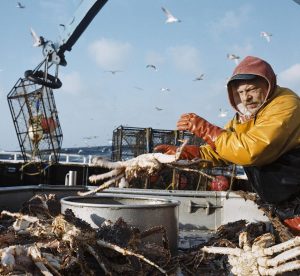



























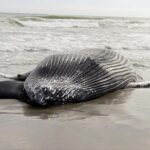

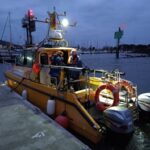
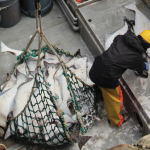



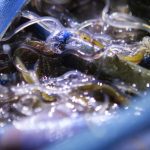



Public comment period ends July 1 for seismic survey permits off SC coast
The South Carolina Department of Health and Environmental Control is currently accepting public comments regarding a new application for seismic testing off the South Carolina coast from WesternGeco LLC. Jeffrey Payne, Director for NOAA’s Office for Coastal Management, said seismic surveys “would have reasonably foreseeable effects on coastal uses or resources of South Carolina’s coastal zone.” In addition to potential reductions in commercial fishing catches there is also the potential for conflicts with other vessels. >click to read<21:10
Share this post